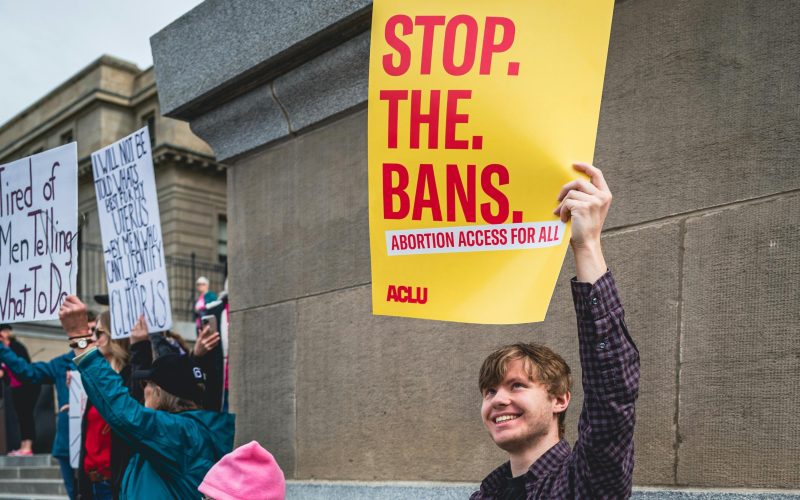The ongoing battle over abortion rights is reshaping the landscape of state Supreme Court elections, leading to unprecedented campaign expenditures and heightened political stakes.
As the implications of the U.S. Supreme Court’s 2022 decision to overturn Roe v. Wade continue to reverberate, various states are witnessing a surge in spending from both conservative and liberal groups, all vying for influence over judicial decisions that could impact reproductive rights for years to come.
The Financial Stakes in Judicial Elections
In North Carolina, the race for a state Supreme Court seat has become emblematic of this trend. Justice Allison Riggs, a Democrat, emphasizes her commitment to reproductive rights in her campaign against Republican opponent Jefferson Griffin.
Riggs argues that the outcome of this election could determine whether stricter abortion laws are enacted in the state, where current restrictions are already more moderate compared to neighboring Southern states. Her campaign has been characterized by significant advertising expenditures aimed at mobilizing voters around the issue of abortion rights.
You may also like to Read: How To Reduce Screen Time For Children: Opinion Of An Expert
How To Reduce Screen Time For Children: Opinion Of An Expert
This situation is not unique to North Carolina. Across the country, 33 states are holding elections for a total of 82 Supreme Court seats this year, with record-breaking spending observed in states like Wisconsin and Pennsylvania during previous election cycles.
The American Civil Liberties Union (ACLU) has notably increased its financial involvement, investing millions in key races across several states, including Michigan and Ohio, where control of the courts could influence future legislation on reproductive health.
A Shift in Political Strategy
The focus on judicial races reflects a strategic pivot by both political parties following the Dobbs v. Jackson Women’s Health Organization ruling. Experts suggest that this decision has heightened awareness among voters and stakeholders regarding the critical role state courts will play in adjudicating issues previously thought to be resolved at the federal level.
As Douglas Keith from the Brennan Center notes, “What Dobbs did was make clear that these state courts… are going to be deciding some of the biggest cases” that affect everyday lives.
Progressive groups are framing their campaigns as essential for preserving abortion rights, with candidates like Kyra Harris Bolden in Michigan highlighting their commitment to protecting reproductive freedoms against potential Republican encroachments.
Conversely, conservative organizations are countering these narratives by promoting candidates who align with their views on various social issues beyond abortion.
Broader Implications Beyond Abortion
The implications of these high-stakes judicial races extend beyond reproductive rights. Control of state courts can influence a range of contentious issues including voting rights and redistricting.
For instance, in Ohio, Democrats are defending crucial seats on a court that recently ruled against stringent abortion restrictions. The outcome of this election could also affect ongoing legal battles regarding voter access and electoral integrity.
Moreover, conservative groups have begun targeting longshot races in traditionally Republican strongholds like Texas, where efforts are underway to unseat justices who have upheld stringent abortion laws.
This indicates a broader strategy where both sides recognize the potential for judicial appointments to shape policy outcomes well into the future.
As we approach critical elections, the battle for control over state Supreme Courts is intensifying, driven by a mix of financial resources and strategic campaigning from both sides of the political spectrum.
With abortion rights at the forefront, these races will likely set precedents that resonate far beyond individual states, influencing national conversations around reproductive health and civil liberties for years to come.





